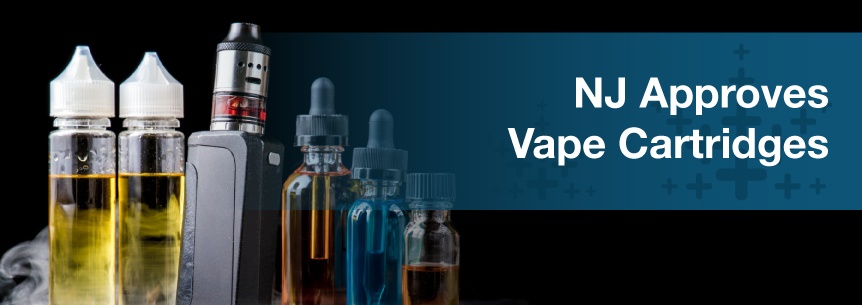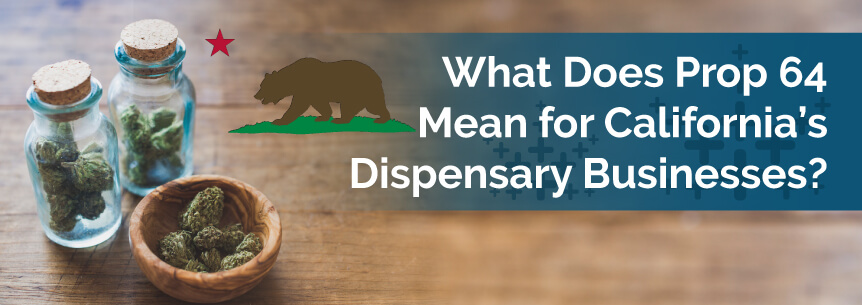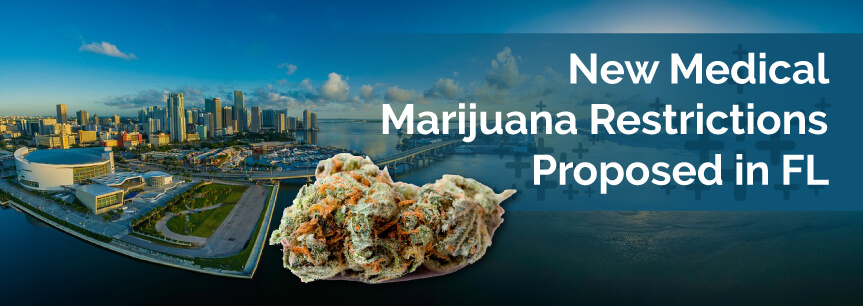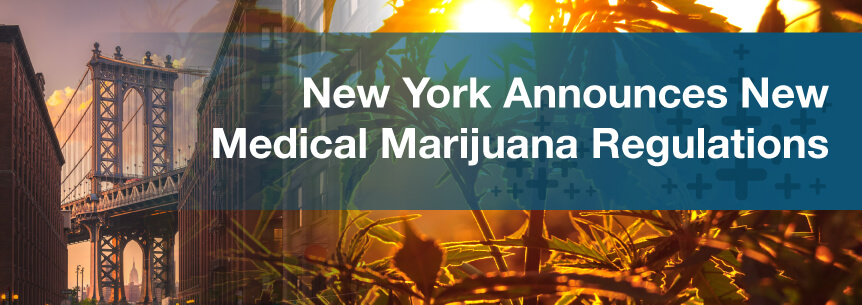In September 2018, the New Jersey Department of Health approved vape cartridges and oils as legal forms of medical marijuana. The change was part of proposed rules for the medicinal marijuana program.
While the Department of Health did not technically finalize the regulations at the time, they allowed this change in advance. One alternative treatment center — also called dispensaries in some other states — quickly got permission to sell cartridges, and another was under consideration. Patients in New Jersey now have another legal care option available to them thanks to this update.
How Do Patients Benefit From Legal Vape Cartridges?
The legalization of vape cartridges in New Jersey gives patients a healthier inhalation option than smoking. Cannabis smoking does not have nearly as many dangers as smoking tobacco. Companies that manufacture tobacco products add harmful chemicals to cigarettes and cigars. Meanwhile, flower and pre-rolled joints have no extra ingredients.
However, smoking marijuana does involve breathing in the irritants that any smoke produces. Patients with lung issues like asthma often can’t smoke at all. Meanwhile, vaping generates no smoke when done correctly.
Patients could vaporize marijuana flower before this update, but vape cartridges act as a more accessible option. Vaporizers that use bud often require extra steps and can cause charring when used the wrong way. Meanwhile, vape cartridges have the express purpose of getting vaped. They fit right into many affordable vaporizer models that can’t use marijuana flower. When a patient has a disability that gets in the way of fine motor function, they can insert a cartridge directly without handling smaller parts.
Where Do Vape Cartridges Fit in the Overall Selection for NJ Patients?
Before the addition of vape cartridges, New Jersey allowed the sale of four types of medicine. Patients could buy dried flower, oral lozenges or topical treatments. Guardians can purchase edibles for minor patients. You can use flower for a variety of purposes, but most methods besides smoking require extra effort.
Lozenges go under the tongue and directly into your bloodstream, but they take about 15 to 30 minutes to provide relief. Topical treatments take about the same amount of time to take effect and impact a localized area. Edibles offer relief within an unpredictable time that varies by patient.
In other words, a patient’s only choice for fast relief is inhalation. Smoking reduces symptoms within five to 10 minutes, which saves crucial time for patients who get sudden and severe onsets. However, for the reasons we mentioned previously, it wasn’t feasible for some people. Vaporizing provides relief just as quickly as smoking in a less irritating form.
New Jersey’s Quickly Expanding Cannabis Policies
Thanks to new leadership, 2018 shows great promise for New Jersey patients in need. Governor Phil Murphy came into office and took immediate actions to improve the medical marijuana program. Governor Jon Corzine signed the New Jersey medicinal cannabis program into law in 2010. Then, Chris Christie took his place.
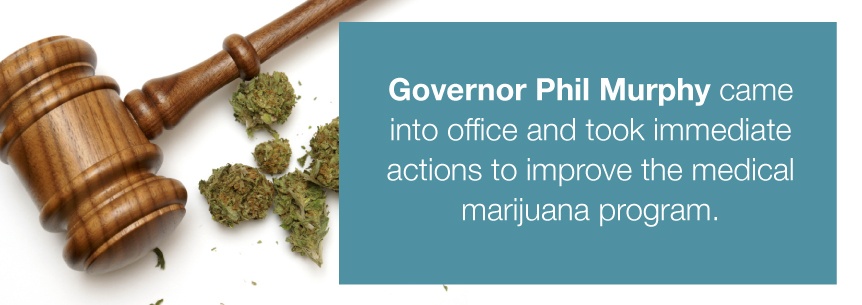
Christie did everything in his power to stall the program’s progress. As a result, the state had only 15,000 patients participating. In comparison, the similarly sized state Michigan had over 200,000 patients.
While Governor Murphy has much to fix, he made great strides in 2018. The program had 16,000 patients in January — a number that nearly doubled to 32,000 by September. This year, leadership established many improvements that let it flourish, including:
- The addition of six more dispensaries
- New qualifying conditions — anxiety, migraines, pain from musculoskeletal disorders, visceral pain and Tourette’s syndrome
- Public awareness campaigns
- Grand rounds lectures at medical schools
- Mobile program registration
- Reduced registration fees
- New dispensary satellite locations
- Increased possession limits for patients
- Up to two primary caregivers instead of one
Governor Murphy and his administration plan to add even more benefits in the future when they finalize their proposed rules.
The NJ Health Department’s Proposed Medical Marijuana Rules
The New Jersey Department of Health published a list of proposed rules for the state medicinal marijuana program on June 18, 2018. They already took action on some of these regulations, including a few mentioned in the previous section. Other action items involve changing the processes for certain parts of the program. These updates include streamlining physician registration and approval of new conditions. Future statutory changes could include:
- Edibles for patients of all ages
- Registration at more than one dispensary
- No requirement to try other treatments first
- Unlimited supply of medication for hospice patients
- Permission for alternative treatment centers to produce medicine
New Jersey’s Health Department also wants to explore the following developments:
- Home delivery
- Testing from certified laboratories instead of the Health Department itself
- Education program for medical providers
- Removal of sales tax on cannabis medicine
- Streamlined alternative treatment center application
Will New Jersey Get Recreational Marijuana Soon?
After reading about these changes, you may wonder if the government has plans for recreational marijuana. It turns out that recreational legalization is definitely on the table, but we don’t know how soon it will come into place. State officials have varying opinions on a potential date for legalization. The president of the State Senate believes that they could have legal recreational cannabis by the end of September.
However, some officials, including Governor Murphy, do not approve of a currently proposed 10 percent tax. New Jersey lawmakers may need to discuss this issue more before they can sign a law.
In the meantime, keep your medical marijuana program membership. Even if recreational legalization happens soon, you could have to wait months for sales to begin. Most states with legal recreational marijuana also give medical marijuana patients extra benefits. But, rest assured that the current state government wants to make cannabis more available for all.
Stay in the Know With MarijuanaDoctors.com
The world of medicinal marijuana changes every day, and we want to help you keep up. At MarijuanaDoctors.com, we offer many easy ways to get updates on medical cannabis across the world. Follow us on Facebook, Twitter or Instagram to see more news and advice in your social media feeds.

